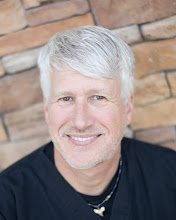Humans require sleep, that's a well proven fact. Not only do we need sleep, we suffer for the lack of it. It's something we all know, but I think it bears repeating from time to time.
In the last decade or so there has been an expansion in our medical knowledge base of sleep... especially the discovery, diagnosis, and treatment of OSA (Obstructive Sleep Apnea). That problem is basically an epidemic now that we know how to diagnose it. Look at the number of people we all know who use a CPAP (Continuous Positive Airway Pressure) device. Those all too common (though necessary) machines are prescribed for people who don't get enough oxygen when they sleep due to obstruction of the airway by the tongue, airway diameter, and a multitude of other factors.
60% of people that have been prescribed a CPAP don't use them for a variety of factors, but the most common one is simply that they are uncomfortable. As someone who suffers with OSA, once it was diagnosed and addressed, I was amazed by how much better I felt. That experience is what lead me to study the disease and to learn how to treat it.
One of the things that all of us human beings suffer from is denial, and that is one of the things that keeps people from dealing with this problem. Folks tend to think "I sleep at night, therefore I don't have this problem." However, what many don't realize is that just because you are sleeping, that doesn't equate to getting the rest and rejuvenation that proper sleep provides. Suffers of OSA sleep restlessly and wake up often, though those "wake up" moments can be so brief that people truly don't remember them or even think they occur.
However, if your brain is not going through the proper phases of sleep, this can have tremendous effects on both mental and physical aspects of your life. Hence today's post. A recent study that was published in September of 2023 has shown that quality of sleep and not just sleeping, can have effects on patient mortality.
I realize that for the non-medical folks who are regular readers of the blog scientific studies might be something you'd rather not read as you may spend more time trying to figure out what it says than it would take you to read the study itself. However, even if you don't have any type of medical background I truly think at least reading the Abstract at the beginning of the article will give you a better understanding.
The study can be found at the Oxford Academic website. You can read it by following this link.






No comments:
Post a Comment